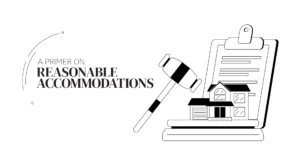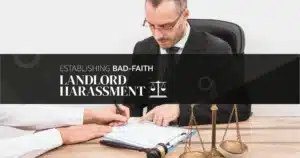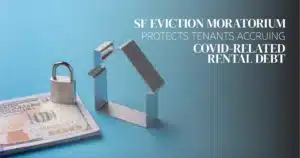Rental homes should be safe and comfortable places to live. Unfortunately, for many tenants in California, that’s not the case. When landlords think it’s okay to call constantly, show up without informing, or threaten to evict for no reason, they’re crossing the line.
California has clear laws to protect tenants, which means you don’t have to tolerate intimidation or bullying. Learning about your rights is the first step to standing up for yourself.
At Law Firm for Tenant Rights, we help tenants across California understand these laws and act when landlords take it too far.
What Is Considered Tenant Harassment in California?
If your landlord is being aggressive to scare you into giving up your rights, you can file a lawsuit.
According to California Civil Code Section 1940.2, harassment can include:
- Threatening or intimidating you
- Cutting off water, heat, or electricity
- Entering your home without proper notice
- Refusing to make repairs after you’ve requested them
- Changing the locks without permission
- Offering money to move out and then retaliating by raising rent unfairly
- Filing false eviction cases
If any of these sound like your landlord, you don’t have to bear this unfair treatment. According to a 2022 study, even the threat of eviction can cause serious emotional and psychological harm. We can help you stand up for yourself and get the justice you deserve.
Examples of Landlord Harassment Under California Law
Sometimes harassment is hard to point out — it can be subtle. Here are a few cases we’ve seen that often come up in California:
- A landlord keeps showing up without prior notice, saying they’re “checking on the place.”
- They turn off your hot water or gas because you complained about repairs.
- They threaten to report your immigration status or personal details.
- If you refuse to move out, they respond by raising the rent.
If any of this sounds familiar, your landlord might be violating California’s tenant harassment laws. In fact, in February 2025, a Santa Monica landlord was fined $450,000 for entering tenants’ homes without notice and cutting utilities. You should take legal action to hold your landlord accountable.
California Civil Code on Tenant Harassment
California has some of the strongest tenant protection laws in the country.
Under California Civil Code 1940.2, it’s illegal for landlords to:
- Use force or intimidation to influence a tenant’s behavior.
- Interfere with basic services.
- Enter the rental without proper notice (usually 24 hours).
- Influence you to leave by fraud, coercion, or repeated disturbance.
Tenants deserve to live peacefully without fear, and these laws exist to protect that right. If your landlord ignores these rules, don’t wait to take action.
What Tenants Can Do If a Landlord Is Harassing Them
You might feel overwhelmed and powerless, but you don’t have to. We will support you and stand with you every step of the way. Here’s what you can do right now to help your lawyer build a strong case.
- Document everything.
Keep records of texts, emails, or notes about each incident.
- Don’t engage in arguments.
Stay calm and avoid reacting emotionally.
- Write to your landlord.
Politely but firmly describe the issue and ask them to stop. Keep a copy for your records.
- Reach out for help.
You can contact your local housing authority or Law Firm for Tenant Rights for guidance on your next steps.
Having a lawyer who understands tenant harassment laws in California can make all the difference. A legal team can collect evidence and protect you from retaliation.
How to File a Tenant Harassment Complaint in California
If your landlord refuses to stop even after multiple times, it’s time to file a complaint.
Here’s how the process generally goes:
- Step 1: File a written complaint with your city or county housing department.
- Step 2: If your area has a rent stabilization board (like Los Angeles or San Francisco), contact them too.
- Step 3: If harassment continues, your lawyer can help you file a lawsuit in civil court.
Depending on your case, you could recover compensation for damages, emotional distress, or attorney’s fees.
Legal Penalties for Landlord Harassment in California
Landlords guilty of harassing tenants can face serious consequences.
They may have to:
- Pay damages (sometimes up to $10,000 per violation)
- Cover the tenant’s legal fees
- Face criminal charges (in some cases)
These laws exist to protect tenants from abuse and ensure safe living conditions.
How Tenant Rights Lawyers Can Help You
Dealing with a difficult landlord can feel exhausting, but you don’t have to do it alone.
An expert tenant rights lawyer can:
- Review your case and explain your legal options
- Send cease-and-desist letters to your landlord
- Represent you in court if needed
- Help recover compensation for harassment or emotional harm
We have helped countless tenants in California. We’ve also held their landlords accountable. Our attorneys are here to make this stressful process easier for you.
Preventing Retaliation After Reporting Landlord Harassment
Many tenants fear that speaking up will make things worse. But California law protects tenants from retaliation.
That means your landlord cannot legally evict, raise rent, or cut services just because you filed a complaint.
If they try to retaliate, your attorney can add a retaliation claim to strengthen your case.
Take Back Your Peace of Mind
Your home should be your safe space, not somewhere you feel threatened or constantly stressed.
If your landlord is crossing the line, it’s time to stand up for yourself.
We are here to help you every step of the way. Contact us today to learn about your rights and what your next steps should be.
Frequently Asked Questions
- What is the punishment for landlord harassment in California?
Your landlord can face fines or even criminal charges depending on the severity of your case.
- Can I sue my landlord for harassment in California?
Yes. You can file a civil lawsuit with the help of a tenant rights lawyer and may recover compensation for emotional distress or other damages.
- What should I do if my landlord keeps entering without permission?
Document every incident and contact a lawyer immediately.
- Can my landlord evict me for complaining?
No. Retaliation is illegal under California law. If your landlord tries, your lawyer can take legal action.
- How long do I have to file a harassment claim?
Most civil claims must be filed within a few years, but it’s best to act quickly so that evidence and witnesses aren’t lost.
- How much does it cost to hire you?
We work on a contingency basis, which means you pay nothing unless we win your case.





